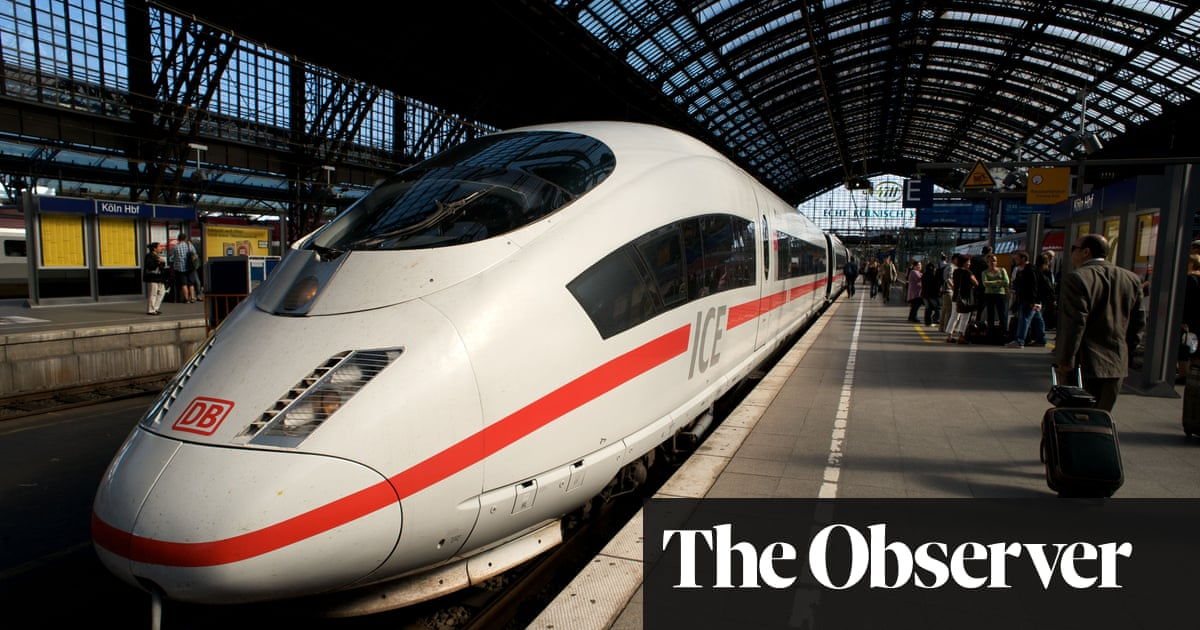Deutsche Bahn’s once-admired service has descended into chaos. Whether decades of poor investment or the company’s unusual structure is to blame, it’s a huge headache for a coalition trying to meet climate goals
The sleek high-speed train is 10 minutes behind schedule when it slides into Cologne’s main station before continuing its journey north to Dortmund. The delay is now such a common occurrence that the train manager does not even both to mention it to disembarking passengers.
In late afternoon on an unremarkable weekday in this western German city, holidaymakers are hauling suitcases through the station, workers are commuting home, and the late arrival of Deutsche Bahn’s IC 118 from Innsbruck is no surprise.
It does cause annoyance, though: a glance at the departures and arrivals board prompts one middle-aged man carrying a backpack to swear loudly as he enters the station.



That’s a big problem. If you incentivize a company to not maintain the infrastructure because you will pay for it once it’s completely broken it will be completely broken.
The company should still maintain the infrastructure, or pay back their consumers for every missed train. They’ve been making profit year-in year-out, the least they could do is throw some of their pocket change at the repair crew.
But most of those profits are coming from (or at least came from) DB Schenker, the trucking branch of the Deutsche Bahn. So they made their profits on the roads, not the tracks.
Ah I see, thanks for the context. Nonetheless, can’t DB take the profits from the Trucks and invest it in the Trains?